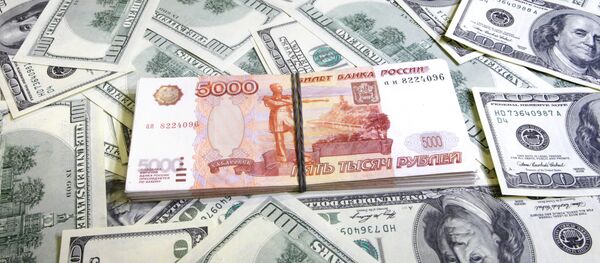MOSCOW, December 18 (Sputnik), Kristian Rouz — The significant decline in global crude prices, which began in June, has had inevitable negative effects for the world’s oil-based economies, heavily reliant on energy exports as main source of income. Diverse nations have been affected in different ways, with ones facing devaluations in national currencies or fiscal mishaps, while others facing more complex systemic failures.
In Venezuela, dollar-denominated income fell by 30% in mid-November, and has continued to decrease ever since, causing a desperate situation in the nation’s finances. Just before the OPEC policy meeting on Nov. 28, the Venezuelan foreign minister unsuccessfully attempted to talk main oil producers, including Russia, Mexico and Saudi Arabia, into cutting production in hopes to stabilize crude price.
Oil exports makes up about 95% of Venezuela’s total export earnings. Oil and natural gas production account for roughly a quarter of the nation’s GDP, according to the OPEC data. The oil slump has resulted in a total loss of $16 bln in potential earnings in 2015 as compared to this year’s performance. The nation, nevertheless, must pay $28.5 bln in national debts in 2016. This situation has created fiscal difficulties in the pseudo-socialist Bolivarian Republic, further exacerbating the already rife social tensions. Mass protests and political uncertainty has been raised by the slump in oil prices, as oil breakeven for Venezuela is $110/bbl.
According to Nigeria’s Finance Ministry, the nation will grow 5.5% next year as compared to the previous projections of 6.4% growth. The naira has depreciated roughly 11% since June, and is still on a downward trend due to fiscal implications. The nation’s budget is based on oil price of $65/bbl next year, but this year’s budget was based on a price of $77.5/bbl. Given Nigeria’s total debt accounts for 13% GDP, the nation is lacking sufficient foreign reserves and is in a war against the Caliphate of Boko Haram, the government had to sanction the naira devaluation in order to make ends meet.
Fiscal difficulties stemming from the oil plunge will impair Nigeria’s ability to address the Islamic Jihadi threat, and Bloomberg has put a scenario of Boko Haram takeover in Nigeria on the list of potential threats of 2015.
In Angola, an OPEC member, oil exports account for 95% of export revenues, while oil production makes up 45% of the nation’s economy. The drop in oil prices has created a humanitarian crisis, as Angola might trim its financing on AIDS-prevention efforts this year. The anticipated cut in financing of HIV prevention may reach about 50%. In 2013, the nation spent $22 mln on countering AIDS, in 2014 the figure hardly reached $16 mln, in 2015 in will further decline to $11 mln.
Yet another source of income for Angola is China, who is actively subsidizing the struggling economy. In early December China offered Angola a $2 bln loan for oil projects, the deal was signed on Dec. 12., according to Reuters.
Thus, the recent oil slump hurts those nations, who are too heavily reliant on oil and gas exports in the absence of alternative sources of income. In some cases, an appealing international reputation or strong relations with the world’s biggest investors make up for several months’ worth of oil revenues – like in Nigeria and Angola. In other cases, like Norway, the economy is just developed enough to be sustainable without one of its biggest source of income. And only the internationally isolated nations, ruled by inefficient bloated governments, like Venezuela, suffer the most when their only reliable backbone, namely the expensive oil, crumbles, leaving the whole nation alone facing the immense challenges of a purely domestic origin.





